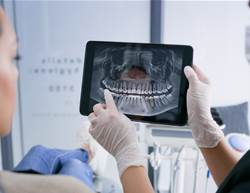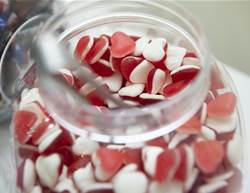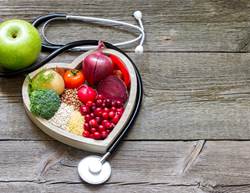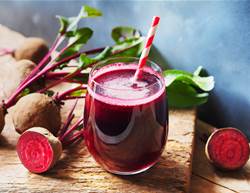Since water makes up nearly 60% of the human body’s weight, it's no surprise that the amount we drink could significantly affect an impressive number of bodily functions, including body temperature regulation, digestion, and even heart health. But, does drinking water lower blood pressure?
Whether you drink multiple glasses of water a day or less, it’s important to learn how staying hydrated can influence your cardiovascular health. Ahead, find everything you need to know about how (and if) water lowers blood pressure.
Dehydration and blood pressure
Dehydration is a condition that occurs when the body loses more fluids than it takes in. And being dehydrated can have a surprising effect on blood pressure.
“When you become dehydrated, your blood volume decreases, which can initially lead to a drop in blood pressure,” explains cardiologist Dr Ian Del-Conde. “However, as the body tries to compensate, it releases certain hormones that can constrict blood vessels and cause blood pressure to rise. This means dehydration can paradoxically result in both low and high blood pressure.”
Observational studies have linked habitual low water intake with blood pressure regulation challenges, but more data is needed to confirm this. One study published in Cureus in 2022 suggested that people with hypertension (high blood pressure) tended to have lower total body water percentage, suggesting a relationship between hydration status and high blood pressure.
Another study published in Frontiers in Public Health showed that, among over 3,000 adults, there was a decreasing trend of hypertension risk as plain water intake increased.
How much water should I drink in a day?
The amount of water you should drink a day varies based on many factors, including health status, activity level, and sex. But Health Direct advises that, on average, women need about eight cups (2.1 litres) of fluids a day and men need about 10 cups (2.6 litres) of fluids a day.
This aims to support essential bodily functions, including temperature regulation, nutrient transportation and waste elimination. Individual needs may vary, and it is crucial to adjust water intake based on personal activity levels and environmental circumstances (say, if you’re spending time outside during a heat wave).
Can other beverages lower blood pressure?
While water is one of the most effective means of staying hydrated, potentially helping support healthy blood pressure, certain other beverages may also support healthy blood pressure.
- Hibiscus tea: Rich in antioxidants, hibiscus tea has been shown to help reduce both systolic and diastolic blood pressure levels.
- Pomegranate juice: Contains potassium and polyphenols, which may promote heart health and assist in lowering blood pressure.
- Beetroot juice: Contains dietary nitrates, or compounds that convert into nitric oxide in the body. Nitric oxide may help relax blood vessels and support healthy blood pressure.
- Low-fat milk: Provides calcium, potassium, and magnesium—three nutrients emphasised on the Dietary Approaches to Stop Hypertension diet, a diet that has been shown to help support healthy blood pressure. Evidence suggests a relationship between dairy consumption as a part of a heart-healthy diet and a reduction in blood pressure.
- Green tea: Contains catechins, which may improve blood vessel function and reduce blood pressure. Even though caffeinated beverages such as tea and coffee can have a diuretic effect, moderate consumption can still contribute to your daily fluid intake.
Ways to lower blood pressure naturally
Hydration status is just one factor that may impact blood pressure. Along with maintaining a healthy hydration status, Dr Del-Conde advises that the following habits may positively impact healthy blood pressure as well.
- Maintaining a healthy weight
- Participating in regular exercise
- Reducing sodium intake
- Limiting alcohol consumption
- Managing stress
- Incorporating foods rich in potassium, magnesium and fibre.
For specific dietary habits, The DASH diet (Dietary Approaches to Stop Hypertension) is designed to combat high blood pressure and may be a viable solution for those trying to keep their heart health in check.
This diet promotes eating nutrients known to help regulate blood pressure by emphasising fruits, vegetables, whole grains, lean proteins, and low-fat dairy products, as well as other foods rich in potassium, calcium, and magnesium, which are essential for blood pressure management. Additionally, this diet recommends reducing intake of sodium, sweets and red meats, all of which have been linked to higher blood pressure levels.
When to see a doctor
It is crucial to know when to see a doctor regarding blood pressure, as maintaining healthy levels is essential for overall wellbeing. “Unfortunately, high blood pressure is probably one of the most commonly underdiagnosed conditions in medicine,” says cardiologist Dr Christopher Davis, who explains that “the main reason is most people can go for years with significantly elevated blood pressure without any symptoms.”
Davis shared that the key to addressing the blood pressure problem early is routine monitoring. “Many automated blood pressure monitoring devices are quite accurate and will allow you to detect blood pressure issues before symptoms arise. Some of these symptoms may include blurred vision, headaches, dizziness, chest pain or shortness of breath.”
He explains that if you have blood pressure that is consistently elevated or experience any of these symptoms, then you should consult your doctor for further evaluation.
Schedule an appointment if you consistently get readings of 130/80 mm Hg or higher, which is hypertension, or 140/90 mm Hg or higher, which indicates severe hypertension. Early intervention and regular monitoring can prevent serious complications, such as heart disease, stroke and kidney damage.










